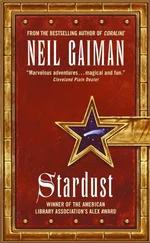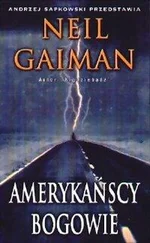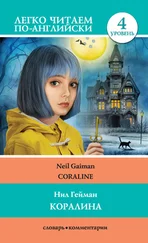Smoke Mirrors - Neil Gaiman
Здесь есть возможность читать онлайн «Smoke Mirrors - Neil Gaiman» весь текст электронной книги совершенно бесплатно (целиком полную версию без сокращений). В некоторых случаях можно слушать аудио, скачать через торрент в формате fb2 и присутствует краткое содержание. Жанр: на английском языке. Описание произведения, (предисловие) а так же отзывы посетителей доступны на портале библиотеки ЛибКат.
- Название:Neil Gaiman
- Автор:
- Жанр:
- Год:неизвестен
- ISBN:нет данных
- Рейтинг книги:3 / 5. Голосов: 1
-
Избранное:Добавить в избранное
- Отзывы:
-
Ваша оценка:
- 60
- 1
- 2
- 3
- 4
- 5
Neil Gaiman: краткое содержание, описание и аннотация
Предлагаем к чтению аннотацию, описание, краткое содержание или предисловие (зависит от того, что написал сам автор книги «Neil Gaiman»). Если вы не нашли необходимую информацию о книге — напишите в комментариях, мы постараемся отыскать её.
Neil Gaiman — читать онлайн бесплатно полную книгу (весь текст) целиком
Ниже представлен текст книги, разбитый по страницам. Система сохранения места последней прочитанной страницы, позволяет с удобством читать онлайн бесплатно книгу «Neil Gaiman», без необходимости каждый раз заново искать на чём Вы остановились. Поставьте закладку, и сможете в любой момент перейти на страницу, на которой закончили чтение.
Интервал:
Закладка:
When I had the idea for this story, it was called "City of Angels". But around the time I actually began to write it, a Broadway show with that title appeared, so when the story was finished, I gave it a new name.
"Murder Mysteries" was written for Jessie Horsting at Midnight Graffiti magazine for her paperback anthology, also called, coincidentally, Midnight Graffiti. Pete Atkins, to whom I faxed draft after draft as I wrote and rewrote it, was invaluable as a sounding board and a paragon of patience and good humour.
I tried to play fair with the detective part of the story. There are clues everywhere. There's even one in the title.
Snow, Glass, Apples
This is another story that began life in Neil Philip's The Penguin Book of English Folktales. I was reading it in the bath, and I read a story I must have read a thousand times before. (I still have the illustrated version of the story I owned when I was three.) But that thousand and first reading was the charm, and I started to think about the story all back to front and wrong way around. It sat in my head for a few weeks and then, on a plane, I began to write the story in longhand. When the plane landed, the story was three-quarters done, so I checked into my hotel and sat in a chair in a corner of my room and just kept writing until it was done.
It was published by DreamHaven Press in a limited-edition booklet that benefited the Comic Book Legal Defense Fund (an organization that defends the First Amendment rights of comics creators, publishers and retailers). Poppy Z. Brite reprinted it in her anthology Love in Vein II.
I like to think of this story as a virus. Once you've read it, you may never be able to read the original story in the same way again.
I'd like to thank Greg Ketter, whose DreamHaven Press published several of these stories in Angels and Visitations, a small-press miscellany of fiction, book reviews, journalism, and stuff I'd written, and who published others as two chapbooks to benefit the Comic Book Legal Defense Fund.
I want to thank the multitude of editors who commissioned, accepted and reprinted the various stories in this book, and to all the beta-testers (you know who you are) who put up with my handing them, faxing them or e-mailing them stories, and who read what I sent them and told me, often in no uncertain terms, what needed fixing. To them all, my thanks. Jennifer Hershey shepherded this book from an idea to reality with patience, charm and editorial wisdom. I cannot thank her enough. My thanks also to Doug Young for his patience and help in preparing the Headline edition of this book.
Each of these stories is a reflection of or on something and is no more solid than a breath of smoke. They're messages from Looking-Glass Land and pictures in the shifting clouds: smoke, and mirrors, that's all they are. But I enjoyed writing them, and they, in their turn, I like to imagine, appreciate being read.
Welcome.
Neil Gaiman
CHAPTER 1: Chivalry
« ^ »
Mrs Whitaker found the Holy Grail; it was under a fur coat.
Every Thursday afternoon Mrs Whitaker walked down to the post office to collect her pension, even though her legs were no longer what they were, and on the way back home she would stop in at the Oxfam Shop and buy herself a little something.
The Oxfam Shop sold old clothes, knick-knacks, oddments, bits and bobs, and large quantities of old paperbacks, all of them donations: secondhand flotsam, often the house clearances of the dead. All the profits went to charity.
The shop was staffed by volunteers. The volunteer on duty this afternoon was Marie, seventeen, slightly overweight, and dressed in a baggy mauve jumper that looked like she had bought it from the shop.
Marie sat by the till with a copy of Modern Woman magazine, filling out a "Reveal Your Hidden Personality" questionnaire. Every now and then, she'd flip to the back of the magazine and check the relative points assigned to an A), B) or C) answer before making up her mind how she'd respond to the question.
Mrs Whitaker puttered around the shop.
They still hadn't sold the stuffed cobra, she noted. It had been there for six months now, gathering dust, glass eyes gazing balefully at the clothes racks and the cabinet filled with chipped porcelain and chewed toys.
Mrs Whitaker patted its head as she went past.
She picked out a couple of Mills amp; Boon novels from a bookshelf-Her Thundering Soul and Her Turbulent Heart, a shilling each-and gave careful consideration to the empty bottle of Mateus Rose with a decorative lampshade on it before deciding she really didn't have anywhere to put it.
She moved a rather threadbare fur coat, which smelled badly of mothballs. Underneath it was a walking stick and a water-stained copy of Romance and Legend of Chivalry by A. R. Hope Moncrieff, priced at five pence. Next to the book, on its side, was the Holy Grail. It had a little round paper sticker on the base, and written on it, in felt pen, was the price: 3Op.
Mrs Whitaker picked up the dusty silver goblet and appraised it through her thick spectacles.
"This is nice," she called to Marie.
Marie shrugged.
"It'd look nice on the mantelpiece."
Marie shrugged again.
Mrs Whitaker gave fifty pence to Marie, who gave her ten pence change and a brown paper bag to put the books and the Holy Grail in. Then she went next door to the butcher's and bought herself a nice piece of liver. Then she went home.
The inside of the goblet was thickly coated with a brownish-red dust. Mrs Whitaker washed it out with great care, then left it to soak for an hour in warm water with a dash of vinegar added.
Then she polished it with metal polish until it gleamed, and she put it on the mantelpiece in her parlour, where it sat between a small soulful china basset hound and a photograph of her late husband, Henry, on the beach at Frinton in 1953.
She had been right: It did look nice.
For dinner that evening she had the liver fried in breadcrumbs with onions. It was very nice.
The next morning was Friday; on alternate Fridays Mrs Whitaker and Mrs Greenberg would visit each other. Today it was Mrs Greenberg's turn to visit Mrs Whitaker. They sat in the parlour and ate macaroons and drank tea. Mrs Whitaker took one sugar in her tea, but Mrs Greenberg took sweetener, which she always carried in her handbag in a small plastic container.
"That's nice," said Mrs Greenberg, pointing to the Grail. "What is it?"
"It's the Holy Grail," said Mrs Whitaker. "It's the cup that Jesus drunk out of at the Last Supper. Later, at the Crucifixion, it caught His precious blood when the centurion's spear pierced His side."
Mrs Greenberg sniffed. She was small and Jewish and didn't hold with unsanitary things. "I wouldn't know about that," she said, "but it's very nice. Our Myron got one just like that when he won the swimming tournament, only it's got his name on the side."
"Is he still with that nice girl? The hairdresser?"
"Bernice? Oh yes. They're thinking of getting engaged," said Mrs Greenberg.
"That's nice," said Mrs Whitaker. She took another macaroon.
Mrs Greenberg baked her own macaroons and brought them over every alternate Friday: small sweet light brown biscuits with almonds on top.
They talked about Myron and Bernice, and Mrs Whitaker's nephew Ronald (she had had no children), and about their friend Mrs Perkins who was in hospital with her hip, poor dear.
At midday Mrs Greenberg went home, and Mrs Whitaker made herself cheese on toast for lunch, and after lunch Mrs Whitaker took her pills; the white and the red and two little orange ones.
The doorbell rang.
Mrs Whitaker answered the door. It was a young man with shoulder-length hair so fair it was almost white, wearing gleaming silver armour, with a white surcoat.
Читать дальшеИнтервал:
Закладка:
Похожие книги на «Neil Gaiman»
Представляем Вашему вниманию похожие книги на «Neil Gaiman» списком для выбора. Мы отобрали схожую по названию и смыслу литературу в надежде предоставить читателям больше вариантов отыскать новые, интересные, ещё непрочитанные произведения.
Обсуждение, отзывы о книге «Neil Gaiman» и просто собственные мнения читателей. Оставьте ваши комментарии, напишите, что Вы думаете о произведении, его смысле или главных героях. Укажите что конкретно понравилось, а что нет, и почему Вы так считаете.









